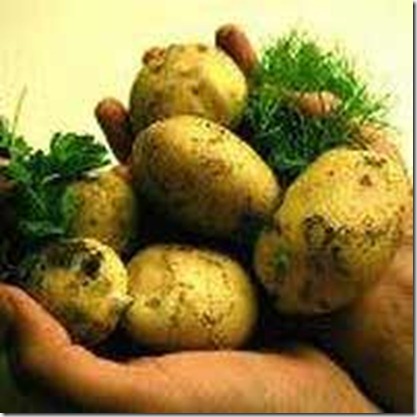Nature-破解迄今最复杂基因组之一-土豆基因组
Nature:破解迄今最复杂基因组之一:土豆基因组
2011/07/13 20:05:40

2011年7月10日,由中国华大基因研究所为首的26家中外科研机构联合在国际著名杂志《自然》(Nature)上在线发表了题为“块茎作物马铃薯的基因组测序及分析”(Genome sequence and analysis of the tuber crop potato)的研究论文,新研究为马铃薯的遗传学研究及分子育种提供了非常有价值的资源。
马铃薯是世界上四大作物之一,也是最重要的蔬菜作物。破译马铃薯基因组序列对帮助科学家们从分子水平上了解马铃薯的生长、发育及繁殖过程,以及改良和提高马铃薯的品种产量、品质和抗病性具有重要的意义。
早在2006年,中国农科院副院长屈冬玉博士作为项目发起人之一,组建了由农科院蔬菜花卉所和深圳华大基因研究院的专家组成的中方团队,参与启动了国际马铃薯基因组测序计划。针对马铃薯基因组高度杂合、物理图谱质量不高、测序成本高等难以克服的困难。中方首席科学家黄三文博士提出了以单倍体马铃薯为材料来降低基因组分析的复杂性,并采用快捷的全基因组鸟枪法策略和低成本的新一代DNA测序技术的新策略。这一策略的改变,大大提高了国际马铃薯基因组测序协会(Potato Genome Sequencing Consortium)的研究进程,促使中国团队实现了从参与到主导地位的改变。
在这篇新文章中,研究人员沿用了上述策略,他们首先将一种普通四倍体马铃薯栽培种诱导生成了一种纯和的双单倍体植株。随后,研究人员针对这一单倍体植株进行了基因组测序,并拼接了马铃薯844 Mb基因组中的86%的序列,从中研究人员推测马铃薯基因组约包含有39031个蛋白质编码基因。研究结果显示马铃薯至少存在两次基因组复制事件,表明了其古多倍体起源。测序结果还证实马铃薯基因组中包含了被子植物进化枝中2642个特异基因。此外,研究人员还对一个杂合二倍体马铃薯植株进行了测序,发现了一些基因组变异以及一些可能与马铃薯近交衰退有关的高频率的有害突变。研究结果表明基因家族扩增,组织特异性表达,以及新通路中基因的招募导致了马铃薯的进化。
此次的马铃薯全基因测序研究为科学家们对马铃薯这一重要农作物进行遗传改良提供了重要的数据资源和平台。
Genome sequence and analysis of the tuber crop potato
The Potato Genome Sequencing Consortium
Nature, doi:10.1038/nature10158
Potato (Solanum tuberosum L.) is the world’s most important non-grain food crop and is central to global food security. It is clonally propagated, highly heterozygous, autotetraploid, and suffers acute inbreeding depression. Here we use a homozygous doubled-monoploid potato clone to sequence and assemble 86% of the 844-megabase genome. We predict 39,031 protein-coding genes and present evidence for at least two genome duplication events indicative of a palaeopolyploid origin. As the first genome sequence of an asterid, the potato genome reveals 2,642 genes specific to this large angiosperm clade. We also sequenced a heterozygous diploid clone and show that gene presence/absence variants and other potentially deleterious mutations occur frequently and are a likely cause of inbreeding depression. Gene family expansion, tissue-specific expression and recruitment of genes to new pathways contributed to the evolution of tuber development. The potato genome sequence provides a platform for genetic improvement of this vital crop.